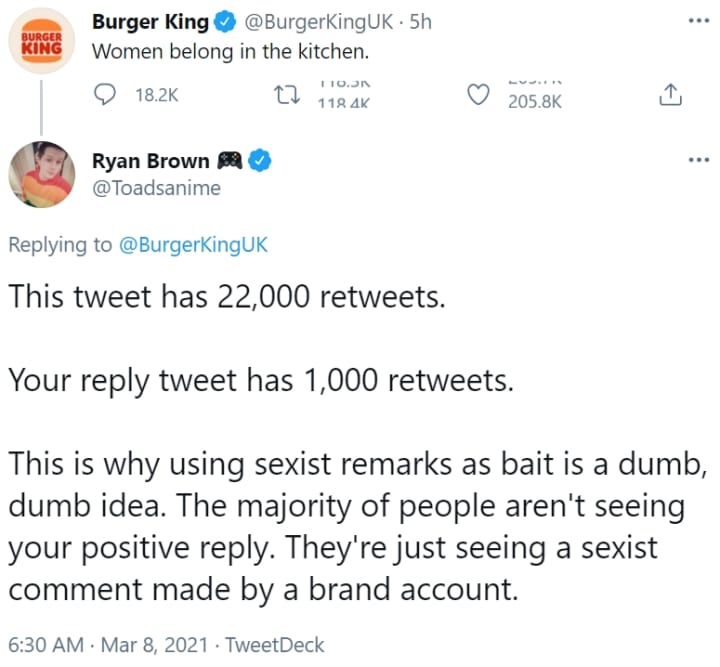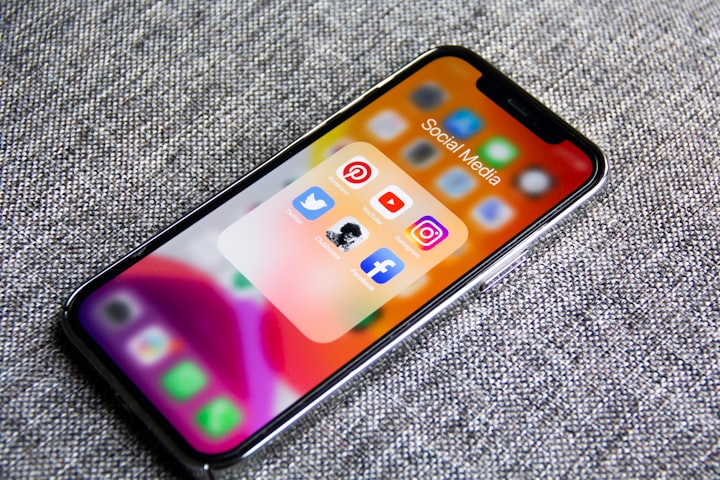The internet has become such a mainstream resource for productivity and leisure, yet every plus has its consequences. It seems as though internet users are particularly mean to others when hiding behind the anonymity of a username. This type of rudeness or defensiveness is more rare in person, yet online it is extremely easy to find an internet troll or an intense argument.
So why do people tend to be so unkind to others online?
One reason is the anonymity. When people create an online profile, they have an option to pick a username and the name they'd like to go by. This means that people can hide behind a fake persona and attack others without any true consequences against them. If this person finds someone that they either disagree with or find a post they get defensive about, then there is nothing stopping them from going off on the person.
In a real life argument, there could be bigger consequences. A fight could ensue, the arguers now know what the other looks like, or it could just lead to embarrassment. When you're online, especially anonymously online, nobody knows who you are and it is less likely for you to get in a physical fight or embarrass yourself in front of people in real life. At best, you could feel embarrassed and just delete your comments or posts.

Secondly, the form of interaction that occurs on social media is doesn't allow for the audience to get the full picture. Important forms of communication are body language and tone. When reading a comment, caption, or tweet that only includes words, then there is no way to determine the true intention of a message. That means that it can be hard to tell if someone is being rude, is simply uneducated, making a joke, or is using sarcasm. Then, someone can take that offensively and start harassing the user who made the original post. With an anonymous account, the person they harass won't even know who they are and they will ultimately face no significant consequences. If someone were to make a tweet about a specific topic, it could cause people to assume more about their beliefs, values, and ideologies without truly knowing.

The first example I could think of was when Burger King UK made a tweet on International Women's Day that said "Women belong in the kitchen." Perhaps this is a somewhat bad example, considering this was a strange approach to advertising their restaurant on International Women's Day. Perhaps the marketing team was striving for a tweet that would get a lot of attention, but the first tweet alone out of context makes the company look terribly sexist.
In the reply below, they stated "If they want to, of course. Yet, only 20% of chefs are women. We're on a mission to change the gender ratio in the restaurant industry by empowering female employees with the opportunity to pursue a culinary career. #IWD."
Many people, understandably, would take the original tweet as them being serious and start responding to the tweet.

The Twitter user above makes a good point. Not a lot of people are going to see the reply and are only seeing a brand account make a sexist remark.
Now, I definitely do not agree with the strategy of making a sexist comment in order to get attention by the media. But, this situation accurately proves my point. People will take their first impression of a tweet and run with it without truly understanding the true intention of the remark.
This will happen to smaller creators as well. Another example of a smaller creator is a specific horoscope post I came across awhile back. Many people would repost it without credit, so I am not sure of the original creator of it. The post was titled "Who would survive the Titanic" and it listed that all of the zodiac signs except Leo would survive. This is a joke because Leonardo DiCaprio's character in the Titanic film, spoiler alert, dies. However, there were a lot of offended Leos in the comment section who did not understand the joke and would harass the person who posted it with extremely rude comments.
When it comes to the "watching videos or viewing photos" aspect of social media, people will make assumptions about someone based on the small clips of one's life they get to see from the video. Nobody posts their entire life online, that's the beauty of posting on social media. People get to create a perfect version of their lifestyles to share, and don't share the "behind the scenes" type of parts of their lives. Below, I have linked an article with great Expectations vs Reality Instagram photos to show this phenomenon.
By seeing people's fake versions of their lives on social media, they can make assumptions about their real lives that end up being disrespectful.
Photos and videos have the same effect as the written words and, if someone makes a comment, the creator of the video could interpret it incorrectly and start a defensive argument.
To conclude this section, a lot of arguments online stem from misinterpretation, poor wording, or first impression assumptions.

A third reason for the excess cruelty on the internet is the fact that topics are searched for or catered to the user. For example, if someone wanted to find a video about an opinion that they had, they could search for it. Or, on apps like TikTok, videos are chosen by the algorithm to show you videos you'd be more likely to interact with. This means that an online forum about a controversial topic would have been sought out by the users or shown to them so they would interact. If one felt strongly about a topic, they'd argue for it. Then, someone very against them would fight back, while people who feel neutral would stay out of it. This means that the comment section would have people with the most extreme viewpoints on the topic. Examples of this can be found under any controversial or politician's post. There are either extremely supportive comments or rude comments that spark argument. It is rare to see those who are neutral to the argument contributing to these forums.

A lot of the time, people are just bored and are trying to stir up trouble on purpose. Internet trolling is a common phenomenon where bored internet users try to rile an innocent user up for no reason at all except for their own enjoyment.
Final Thoughts
Of course, the ability to share thoughts freely with strangers on the internet will lead to more internet trolls. Just remember before leaving a comment:
1. It takes 5 seconds to leave a rude comment and scroll away. However, any user who you offend could take your comment with them for the rest of their life.
2. If you were to step away from the content you want to comment on for 10 minutes and came back, would you still care that much?
3. Is it absolutely necessary to leave a comment when you could scroll away instead?
Of course, I'm not going to stop you from sharing your opinions. You do you. If you need to defend yourself or want to debate over a controversial topic, have at it. It is your time and not mine, but for many, stepping away from negative interactions will lead to a more peaceful lifestyle.
Read similar: How TikTok Changed the Internet
About the Creator
Annie
she/her
I have a small sticker shop on Etsy called DynamiteArtStickers, so if you can, please check that out. The IG for it is @dynamiteart368.







Comments
There are no comments for this story
Be the first to respond and start the conversation.